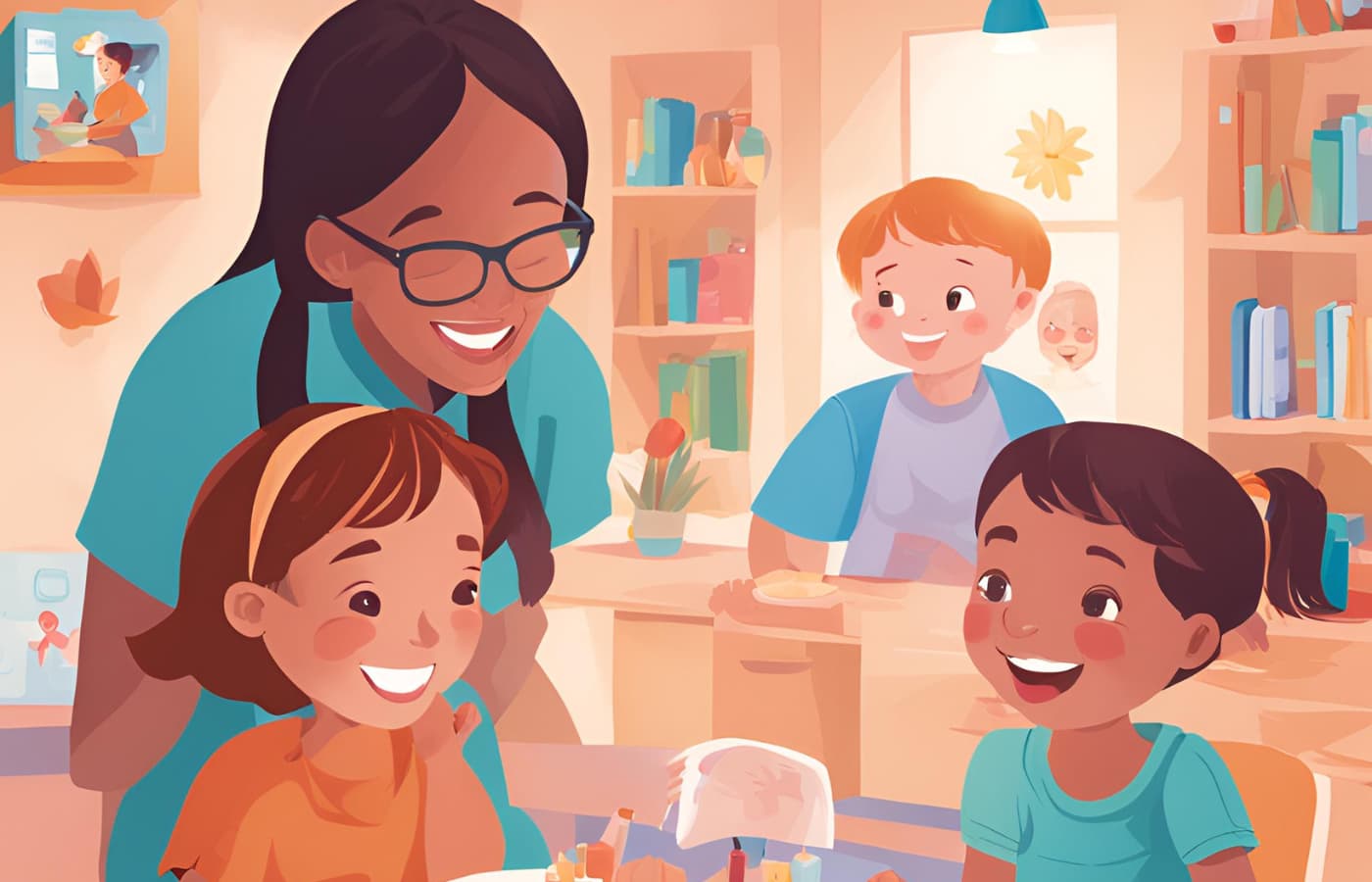Social skills are the building blocks of human interaction, enabling us to connect with others, build relationships, and navigate the complexities of social situations. For children with autism spectrum disorder (ASD), developing these skills can present unique challenges. Fortunately, social skills groups offer a supportive and structured environment where children with autism can learn, practice, and thrive in their social interactions. This comprehensive guide will explore the transformative power of social skills groups, highlighting their benefits, how they work, and why they are changing lives for kids with autism.
Understanding the Social Challenges of Autism
Autism spectrum disorder (ASD) is a neurodevelopmental condition that affects communication, social interaction, and behavior. Children with ASD often experience difficulties with:
- Understanding and Using Social Cues: They may struggle to interpret facial expressions, body language, and tone of voice, making it challenging to understand social situations and respond appropriately.
- Communication: They may have difficulty with verbal and nonverbal communication, including initiating and maintaining conversations, understanding social nuances, and expressing their thoughts and feelings effectively.
- Social Interaction: They may struggle to initiate and maintain social interactions, engage in reciprocal play, and build meaningful relationships with peers.
- Flexibility and Adaptability: They may have difficulty adapting to changes in routine or unexpected social situations, leading to anxiety and challenges in navigating social environments.
The Power of Social Skills Groups
Social skills groups provide a safe and supportive space where children with autism can learn and practice social skills with their peers. These groups offer a structured and engaging environment where children can develop the skills they need to thrive in social situations.
Key Benefits of Social Skills Groups
- Structured Learning: Social skills groups provide structured learning opportunities with clear expectations and goals, helping children understand and practice specific social skills in a safe and predictable environment.
- Peer Interaction: Interacting with peers provides opportunities for children to practice social skills in a natural and engaging setting, learning from each other and developing friendships.
- Improved Communication: Children can practice their communication skills, including verbal and nonverbal communication, turn-taking, and active listening, in a supportive group setting.
- Increased Confidence: As children develop their social skills and experience success in social situations, their confidence and self-esteem can improve.
- Reduced Anxiety: By practicing social skills in a safe and structured environment, children can reduce their anxiety and feel more comfortable in social situations.
- Generalization of Skills: Social skills groups help children generalize their learned skills to different settings and situations, promoting social integration and independence.
How Social Skills Groups Work
Social skills groups typically involve a combination of:
- Direct Instruction: Teaching specific social skills, such as initiating conversations, making eye contact, and understanding social cues.
- Role-Playing and Modeling: Practicing social skills through role-playing and observing positive social interactions modeled by therapists or peers.
- Games and Activities: Engaging in games and activities that promote social interaction, communication, and teamwork.
- Feedback and Reinforcement: Providing positive feedback and reinforcement to encourage children and help them build confidence in their social abilities.
Finding Social Skills Groups
Social skills groups are offered by various organizations and providers, including:
- Therapy Centers: Many therapy centers that offer ABA therapy or other services for children with autism also have social skills groups.
- Schools: Some schools offer social skills groups as part of their special education programs or after-school activities.
- Community Centers: Community centers and recreational programs may offer social skills groups for children with autism.
- Non-Profit Organizations: Organizations dedicated to autism support and advocacy often offer social skills groups and other resources for families.
When searching for social skills groups, consider using specific keywords to narrow down your search. For example, if you’re looking for social skills groups in Chicago suburbs, you can refine your search to find programs in your local area.
Choosing the Right Social Skills Group
When selecting a social skills group for your child, consider the following factors:
- Age and Developmental Level: Choose a group that is appropriate for your child’s age and developmental level.
- Group Size and Structure: Consider the size of the group and the level of structure provided. Some children may benefit from smaller, more intimate groups, while others may thrive in larger, more dynamic groups.
- Curriculum and Approach: Inquire about the curriculum and approach used in the group. Some groups may focus on specific social skills, such as conversation skills or play skills, while others may take a more holistic approach.
- Therapist Qualifications: Ensure the group is facilitated by qualified professionals with experience in working with children with autism.
- Location and Schedule: Choose a group that is conveniently located and has a schedule that works for your family.
- Cost and Insurance Coverage: Inquire about the cost of the program and whether your insurance plan covers social skills groups.
The Role of Parents and Caregivers
Parents and caregivers play a crucial role in supporting their child’s social skills development. Here are some ways you can help:
- Practice at Home: Practice social skills with your child at home, using role-playing, games, and everyday interactions.
- Generalized Skills: Help your child generalize their learned social skills to different settings and situations.
- Provide Positive Reinforcement: Encourage and praise your child for their efforts and progress in social situations.
- Model Positive Social Behavior: Be a role model for your child by demonstrating positive social skills in your interactions.
- Communicate with the Group Facilitator: Stay in communication with the group facilitator to discuss your child’s progress and any challenges they may be facing.
Conclusion
Social skills groups are a valuable resource for children with autism, providing a supportive and structured environment where they can learn, practice, and grow in their social abilities. By participating in social skills groups, children can improve their communication, build relationships, increase their confidence, and reduce anxiety in social situations. When combined with other therapies and interventions, social skills groups can play a crucial role in helping children with autism reach their full potential and thrive in their communities.


